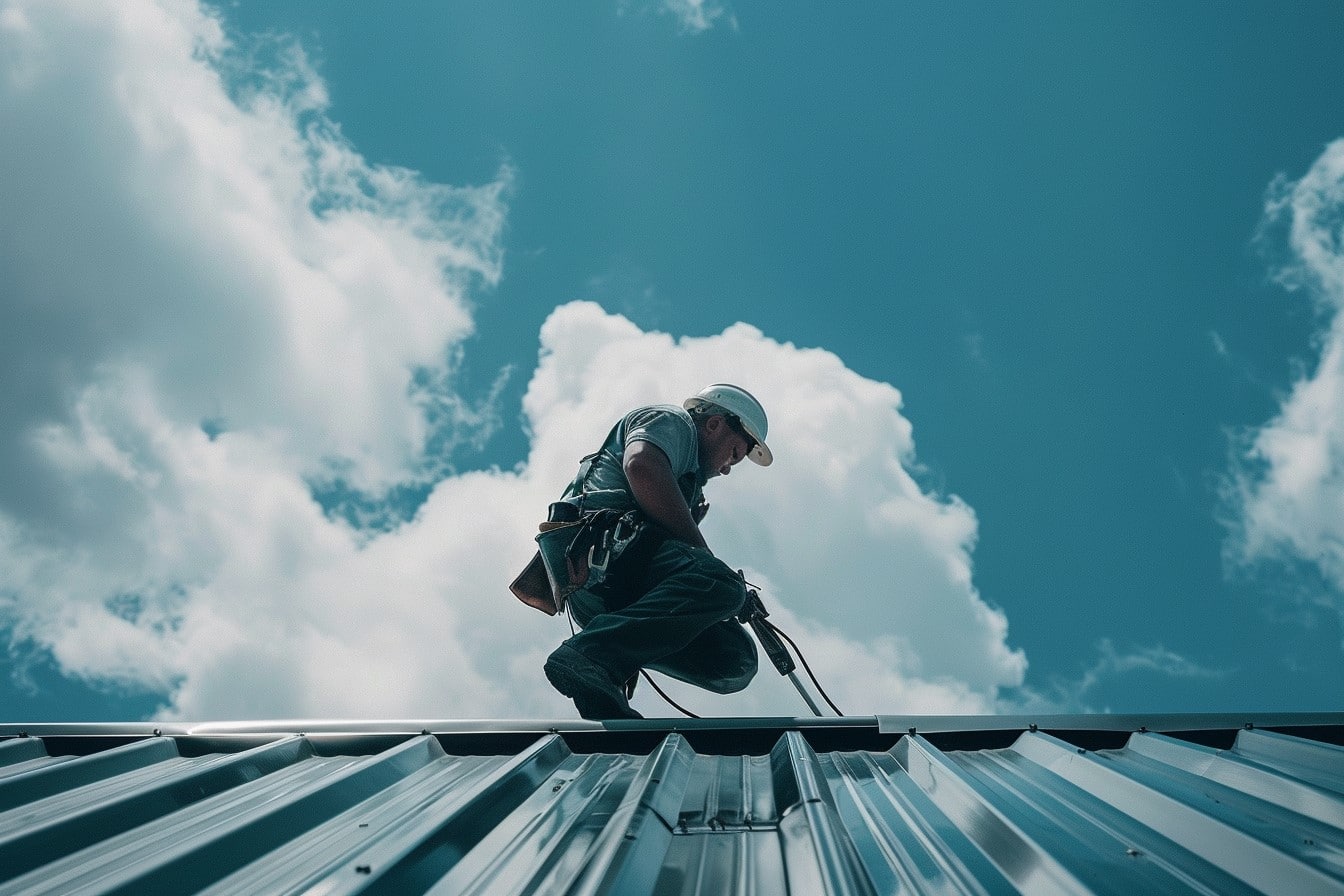Choosing the right roof color significantly impacts a home’s aesthetics, energy efficiency, and longevity. This guide explores desirable options, highlighting how colors like classic grays, rustic browns, and cool black hues enhance appeal and functionality. Light-colored roofs are ideal for hot climates as they reflect UV rays and reduce cooling costs, while darker roofs suit moist climates better. The correct roof color choice boosts curb appeal and resale value, considering factors like climate, texture, and architectural style to find the perfect match.
Key Takeaways
- The importance of roof colors extends beyond aesthetics to influence the durability and energy efficiency of a home.
- Opting for lighter-colored roofs can reflect UV rays and keep the home cooler in hotter climates, thus reducing cooling costs.
- Darker roofs can help hide moisture and algae stains, making them suitable for areas with higher rainfall.
- Choosing the right roof colors can enhance curb appeal, thereby potentially increasing the property’s market value.
- It’s crucial to choose a roof color that complements your home’s architectural design and siding.
- Various roof color options are available, and understanding your needs can help you select the most suitable one.
- Timeless color options, such as rustic browns, classic grays, and black shingles, can add a touch of elegance to any home’s exterior.
The Impact of Roof Colors on Home Longevity
Choosing the right color for your roof is an integral aspect of home construction or renovation. Not only does the shade make a statement about your home’s aesthetic appeal, but it also significantly impacts energy efficiency, affecting the longevity of your dwelling.
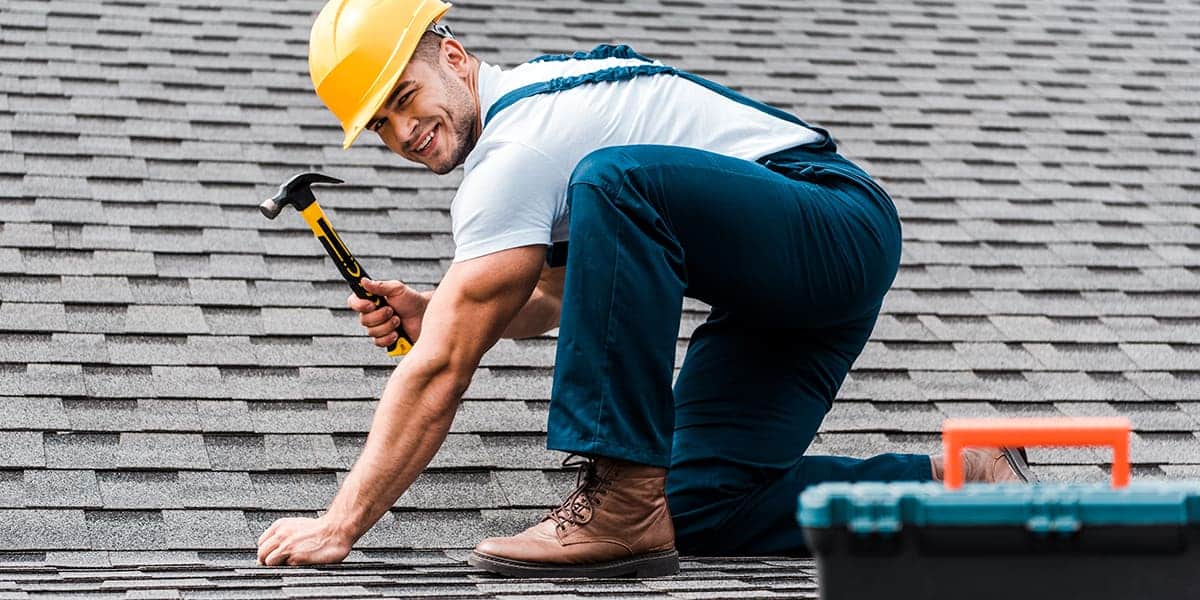
Energy Efficiency and Color Reflectivity
Energy efficiency is a vital factor in the appeal of a home. Buyers are opting for homes that promise low energy costs. That’s where roof colors come into play. Lighter shades, such as whites and specific greys, have a higher reflectivity, ultimately keeping homes cooler by minimizing heat absorption. The home, in turn, depends less on air conditioning, saving energy. On the flip side, darker shades, including blacks, can retain heat during cooler periods, potentially lowering heating requirements. It’s crucial to consider your geographic location when selecting a shade.
Popular Roof Colors and Their Long-Term Benefits
Roof color trends have seen a shift towards dark browns and light browns, with blues and greens gaining popularity. Contrary to popular belief, these shades, while trendy, also offer energy efficiency benefits. Dark browns and blacks perform well in cold climates, retaining heat during the winter months. Light colors, like cool blues and whites, do well in warmer regions due to their reflectivity. Thus, these colors don’t merely boost your home’s aesthetic appeal; they also contribute to the home’s energy efficiency.
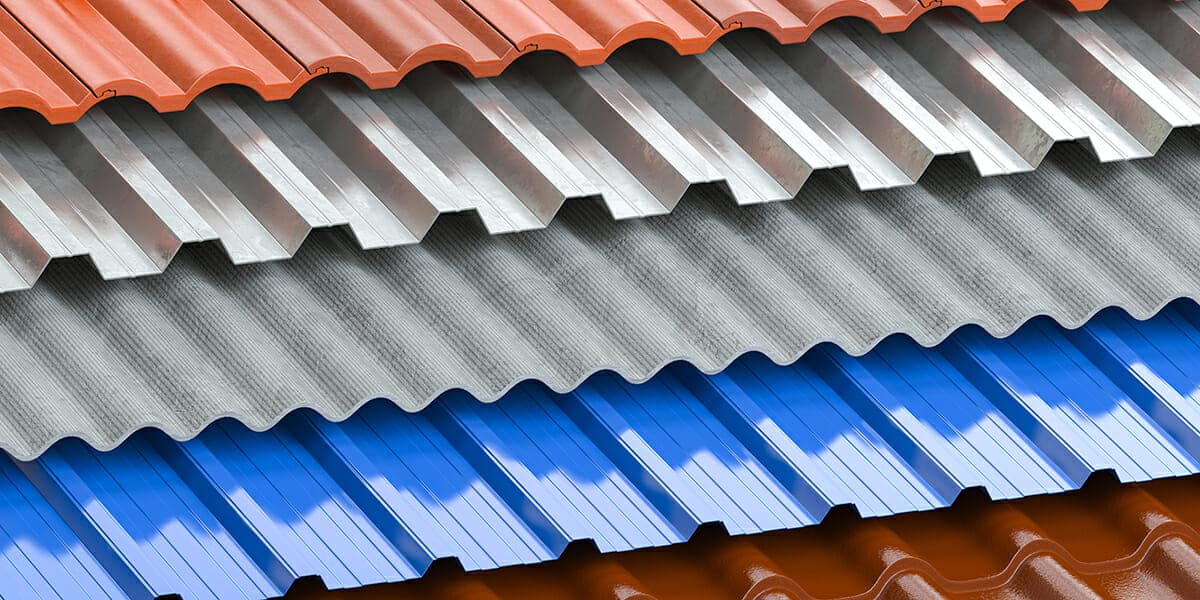
Timeless Aesthetics: Choosing Colors That Last
Choosing the right roof color is crucial for enhancing your home’s appeal and ensuring its energy efficiency. Timeless, marketable shades like neutrals—browns, greys, whites, and blues—strike the perfect balance between style and function. A carefully picked roof color boosts your home’s market value, energy sustainability, and longevity, making it not only more attractive but also more sustainable and cost-effective.
Roof Color Trends: What’s Popular in 2024?
In the dynamic world of home exterior design, the year 2024 has seen certain roof color ideas rise to popularity. These trendy colors represent a diverse palette, reflecting a perfect blend of both traditional and contemporary preferences.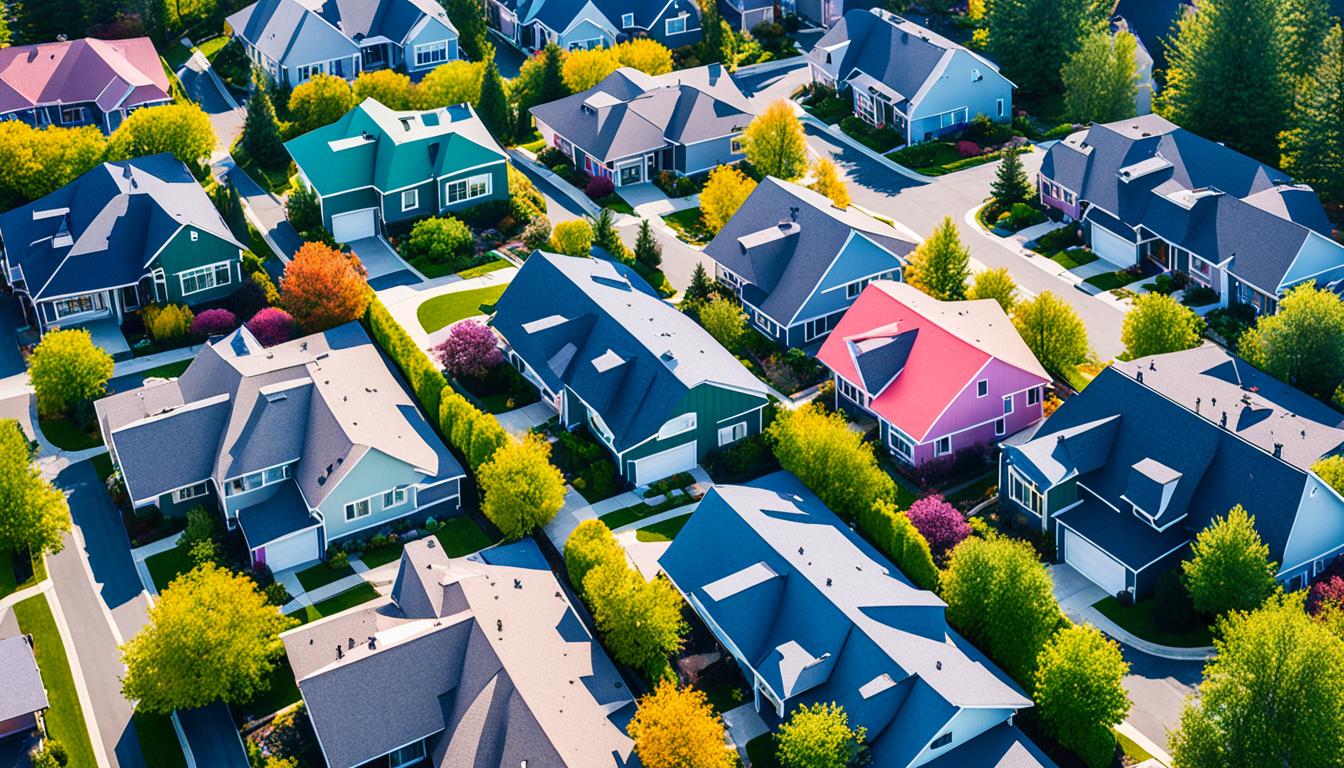
This year, warm, earthy browns from sand to autumn shades dominate roofing trends, complemented by blue and green hues like denim to the forest and sophisticated off-whites such as beige and stone. Noteworthy are Owens Corning Red Copper and GAF Timberline shingles, highlighting the shift towards personalized roofing colors. It’s emphasized that choosing a roof color is a balance of trend-following and personal style, ensuring a lasting choice you’ll love for years.
Here is a summary of the trending roof colors of 2024:
| Color | Description |
|---|---|
| Light Brown | Inspired by the earthy elements of sand and taupe |
| Dark Brown | Mirrors the sturdy presence of autumnal brown and tree bark |
| Blue and Green Shades | The range spans from casual denim, navy, and sky to the forest and moss hues. |
| Off-White | Subdued yet sophisticated options like beige, stone, and khaki |
| Special Selections | Owens Corning Red Copper, GAF Timberline® HDZ™ Hunter Green, GAF Timberline® AH Appalachian Sky shingles |
In conclusion, as you consider roof color ideas for your home, remember that the color trends of 2024 are only a guide. Ultimately, the choice depends on your personal style, the architectural design of your home, and the climate in your region.
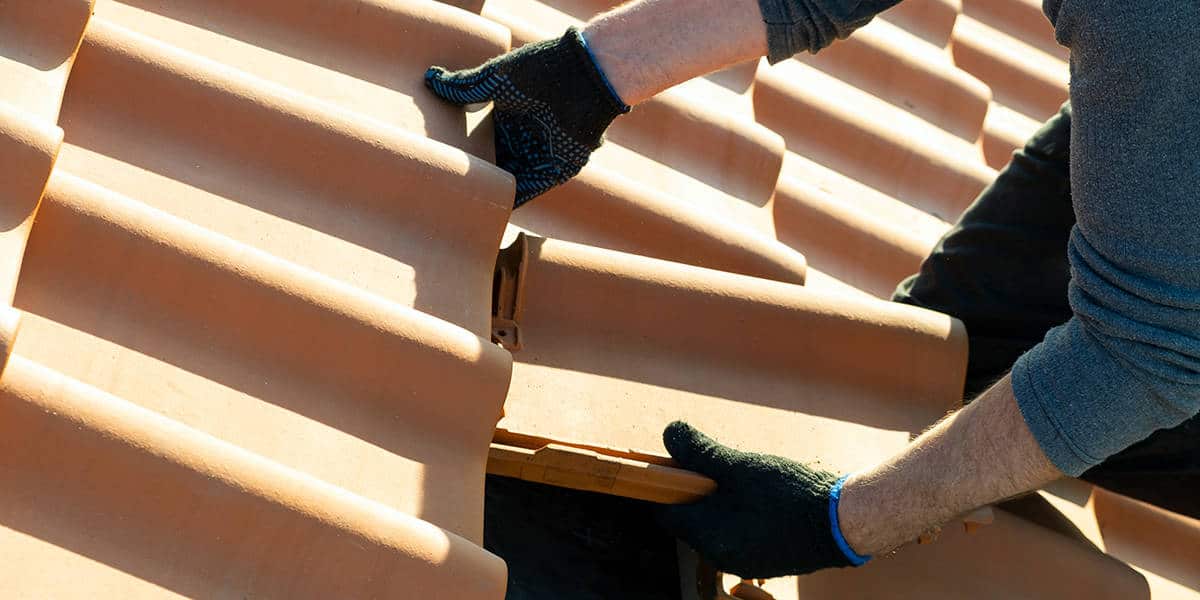
Rising Value: Best Roof Colors for Resale
Did you know the color of your roofing materials could directly influence the resale value of your home? Well, it’s true. A roof isn’t just about protection and longevity; it’s also about aesthetic appeal and compatibility with your home’s overall design and color scheme. This unique blend of aesthetic value and practical utility goes a long way in determining market attractiveness. Let’s explore this further.
Aesthetics Versus Functionality: Finding the Balance
Maintaining a perfect balance between aesthetic appeal and functionality is fundamental when choosing the best roof colors for resale. While dark roofs tend to soak up sunlight, and lighter ones reflect it, what’s important is to select a color that syncs well with your location’s climate. It’s also imperative for homeowners to consider the visual appeal of their chosen colors. Remember, your roof’s color becomes a part of your home’s personality. So, relish the process and choose a color you love.
Color Combinations That Sell: Siding and Roof Sync
FAQ
Which roof colors are considered best for extending the lifespan of my home?
Roof color plays an important role in the longevity and energy efficiency of your home. Lighter colors, such as beige or white, reflect sunlight and minimize heat absorption, reducing the reliance on air conditioning. On the other hand, darker colors like black can retain warmth during cooler periods, potentially reducing heating costs. Ideally, the color you choose should balance your home’s aesthetics with your regional climate’s demands.
How does roof color impact energy efficiency and reflectivity?
The color of your roof has a direct impact on your home’s energy efficiency. Lighter colors reflect sunlight and minimize heat absorption, reducing the need for frequent air conditioning systems. Conversely, darker colors absorb heat and can retain warmth during colder periods, thereby lowering heating costs.
What are the popular roof colors that offer long-term benefits?
Popular long-term beneficial colors include light and dark brown hues like sand, taupe, and autumn brown. Adventurous color options like blue and green shades are also popular among homeowners. Neutral colors like beige, tan, black, and gray have timeless aesthetics and add significant value to your home in the long run.
What are the timeless aesthetics when choosing my roof color?
Timeless aesthetics are those colors that remain appealing over the years and work well with various architectural styles. They include neutral shades like beige, taupe, black, and gray, which enhance the appearance of any house while ensuring durability and practicality.
What are the roof color trends for 2024?
Some of the most popular roof colors for 2024 include a variety of hues, from light browns like sand and taupe to off-whites such as beige and tan. The color spectrum’s exploration also includes more adventurous colors like blue and green, offering a splash of personality to your home’s design. Notably, the Owens Corning Red Copper, GAF Timberline® HDZ™ Hunter Green, and GAF Timberline® AH Appalachian Sky shingles have emerged as popular choices because of their distinctive appearance and excellent performance.
How can I choose the best roof colors for resale value?
Harmonizing the color of the shingles with your home’s siding can significantly impact curb appeal. Besides, considering your home’s architectural style is vital. For example, red roofs often complement Mediterranean homes, while grays and blacks suit Colonial designs. Opting for favorites like beige, tan, black, and gray can safeguard your choice from becoming outdated and maintain its elegance over time.
How can I balance aesthetics and functionality when choosing roof colors?
Balancing aesthetics and functionality involves considering factors such as the architectural style of your house, the regional climate, and potential resale value. While you may lean towards a certain color because of its visual appeal, it’s also essential to factor in how well it will perform practical elements like energy efficiency and longevity of the material.
What are the ideal color combinations for my siding and roof?
Ideal color combinations depend on the color of your home’s siding and the architectural style. Classic contrasts like beige or white siding with a dark roof are a safe bet. A red roof often complements Mediterranean homes, while Colonial designs suit grays and blacks. It’s best to choose a combination that enhances both the curb appeal and the marketability of your house.
